



Archive for the Category 'Statements'

 The current struggle of the French workers and youth represents an obvious leap compared to the previous cycle of the class struggle that began in 1995. It is announcing a higher level of class struggle, more open, more radicalized and more classical, that is, with greater centrality of the working class and with a protagonist role of students workers and in the factories. It is a new cycle of the class struggle in response to the world crisis underway with repercussions in France and internationally. The economic depression leaves the bourgeoisie with only one possible course of action: attacking the social conquests that still remain from the so-called welfare state and worsening the living conditions of the masses, including groups that in their time benefited from the crumbs of the neo-liberal offensive, such as some people from the middle class. »»»»
The current struggle of the French workers and youth represents an obvious leap compared to the previous cycle of the class struggle that began in 1995. It is announcing a higher level of class struggle, more open, more radicalized and more classical, that is, with greater centrality of the working class and with a protagonist role of students workers and in the factories. It is a new cycle of the class struggle in response to the world crisis underway with repercussions in France and internationally. The economic depression leaves the bourgeoisie with only one possible course of action: attacking the social conquests that still remain from the so-called welfare state and worsening the living conditions of the masses, including groups that in their time benefited from the crumbs of the neo-liberal offensive, such as some people from the middle class. »»»»
 read comments (0)
read comments (0)
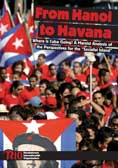 When the guerilla assumed power, its program was based on the utopian vision of an independent Cuban capitalism, including a land reform to give land to poor peasants and decrease US influence in agriculture. Castro famously declared that the revolution was “not red but olive green” and in a visit to the United States in April 1959, he went even further: “I have said clearly and definitively that we are not communists. The doors are open to private investments that contribute to the development of industry in Cuba. It is absolutely impossible for us to make progress if we don’t reach an understanding with the USA.”[7] »»»»
When the guerilla assumed power, its program was based on the utopian vision of an independent Cuban capitalism, including a land reform to give land to poor peasants and decrease US influence in agriculture. Castro famously declared that the revolution was “not red but olive green” and in a visit to the United States in April 1959, he went even further: “I have said clearly and definitively that we are not communists. The doors are open to private investments that contribute to the development of industry in Cuba. It is absolutely impossible for us to make progress if we don’t reach an understanding with the USA.”[7] »»»»

 Cuba was historically dominated by imperialism, first as a colony of Spain and then as a semi-colony of the United States. The island gained independence in 1902, but the Cuban constitution included an amendment granting the United States the right to intervene militarily at any time until 1934. The political power of US imperialism had an economic foundation, since US companies owned a large part of Cuba’s land and industry. For example, US capital owned 35% of sugar production, alongside countless hotels and casinos, while the rest of the economy belonged to a small and slavishly pro-imperialist Cuban bourgeoisie[4]. »»»»
Cuba was historically dominated by imperialism, first as a colony of Spain and then as a semi-colony of the United States. The island gained independence in 1902, but the Cuban constitution included an amendment granting the United States the right to intervene militarily at any time until 1934. The political power of US imperialism had an economic foundation, since US companies owned a large part of Cuba’s land and industry. For example, US capital owned 35% of sugar production, alongside countless hotels and casinos, while the rest of the economy belonged to a small and slavishly pro-imperialist Cuban bourgeoisie[4]. »»»»

 Cuba seems like an anachronism in today’s world. Other formerly “socialist” states reintroduced capitalism in the upheavals of the 1990s. In Russia, the Communist Party was toppled and its system collapsed. In China and Vietnam, the Communist Parties themselves led a controlled process of reforms to reestablish a market economy. Cuba alone has maintained to this day an economy which is dominated not by the laws of the market but by a plan[1]. »»»»
Cuba seems like an anachronism in today’s world. Other formerly “socialist” states reintroduced capitalism in the upheavals of the 1990s. In Russia, the Communist Party was toppled and its system collapsed. In China and Vietnam, the Communist Parties themselves led a controlled process of reforms to reestablish a market economy. Cuba alone has maintained to this day an economy which is dominated not by the laws of the market but by a plan[1]. »»»»

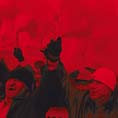 The AKP’s victory in the constitutional referendum in Turkey is no step towards popular rule
The AKP’s victory in the constitutional referendum in Turkey is no step towards popular rule
The passage of the constitutional reform in Turkey with nearly 60% of the votes in favor is a clear defeat for the faction of the Turkish capitalists who have intensive links to the Turkish military and state apparatus, and especially for this apparatus itself. It has to accept some limitations of its autonomy. »»»»

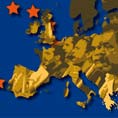 Only a socialist Europe can save us from the effects of the economic crisis!
Only a socialist Europe can save us from the effects of the economic crisis!
1. The crisis hits Europe
The world economic crisis that began with the collapse of the US investment bank Lehman Brothers in September 2008 is now entering its third year. Although the crisis began in the USA, Europe is now at the center. Several countries of the old continent – both in the Mediterranean and in the East – are on the verge of bankruptcy. »»»»

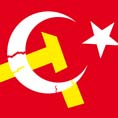 What is the meaning of the upcoming referendum on constitutional reform in Turkey?
What is the meaning of the upcoming referendum on constitutional reform in Turkey?
Turkey is mired in crisis. The ruling class of the country is divided: The Kemalist party CHP, which dominates the army and the state bureaucracy, is fighting against the conservative AKP, which controls the government and the majority of parliament. The CHP sees itself as the protector of the principles of the Turkish Republic, founded in 1923 by Mustafa Kemal. The AKP, in contrast, represents a rising bourgeoisie that wants to put the state apparatus in its place. »»»»

 In RIO, all decisions are made democratically. We try to discuss until we reach an agreement – but this is of course not always possible. In this case, the position of the organization is determined by a majority vote. In RIO – in contrast to many revolutionary organizations – minorities have the right to publish their arguments, as long as their political work is based on the decided position. On the question of the constitutional reform in Turkey, the majority of RIO decided to call for a critical “yes”, while a small minority argued for a boycott. Since this discussion is going on in the entire radical left of Turkey, we want to briefly present the position of the minority. »»»»
In RIO, all decisions are made democratically. We try to discuss until we reach an agreement – but this is of course not always possible. In this case, the position of the organization is determined by a majority vote. In RIO – in contrast to many revolutionary organizations – minorities have the right to publish their arguments, as long as their political work is based on the decided position. On the question of the constitutional reform in Turkey, the majority of RIO decided to call for a critical “yes”, while a small minority argued for a boycott. Since this discussion is going on in the entire radical left of Turkey, we want to briefly present the position of the minority. »»»»

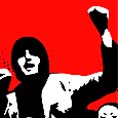 An antimilitarist from Munich is being persecuted by the justice system
An antimilitarist from Munich is being persecuted by the justice system
While Germany is arming itself and participating in more and more wars, the ruling class wants to have a peaceful hinterland. The increasing xenophobia and the growing Nazi movement are a product of Germany’s imperialist policies. »»»»

 A major dispute is underway between mineworkers in Poltava in West Ukraine and Ferrexpo Plc, a major player on the global market mainly engaged in mining of iron ore. All three shifts in the open cast in the town of Komsomolsk, of more than 300 workers each are now involved in industrial action. Some railway locomotive drivers and workers on the iron ore concentrating factory have joined in solidarity. »»»»
A major dispute is underway between mineworkers in Poltava in West Ukraine and Ferrexpo Plc, a major player on the global market mainly engaged in mining of iron ore. All three shifts in the open cast in the town of Komsomolsk, of more than 300 workers each are now involved in industrial action. Some railway locomotive drivers and workers on the iron ore concentrating factory have joined in solidarity. »»»»

We, the Revolutionary Internationalist Organization (RIO), have studied the development of the Fourth International from its founding in 1938 until the first split in 1953. We were not interested in this topic for historical reasons, but rather to draw political conclusions for building a revolutionary workers’ International today. In the last 60 years, international Trotskyism has fragmented into dozens of tendencies, and the present document does not provide an analysis of this development. However, it does provide a basis for a concrete investigation of these different tendencies. »»»»
